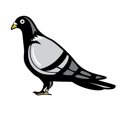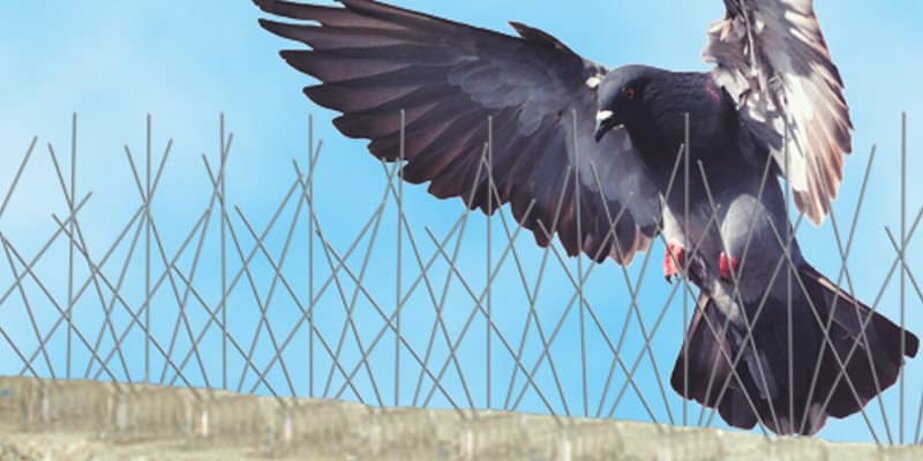Ecopiakos Ecological Solutions - VAT 05534520878
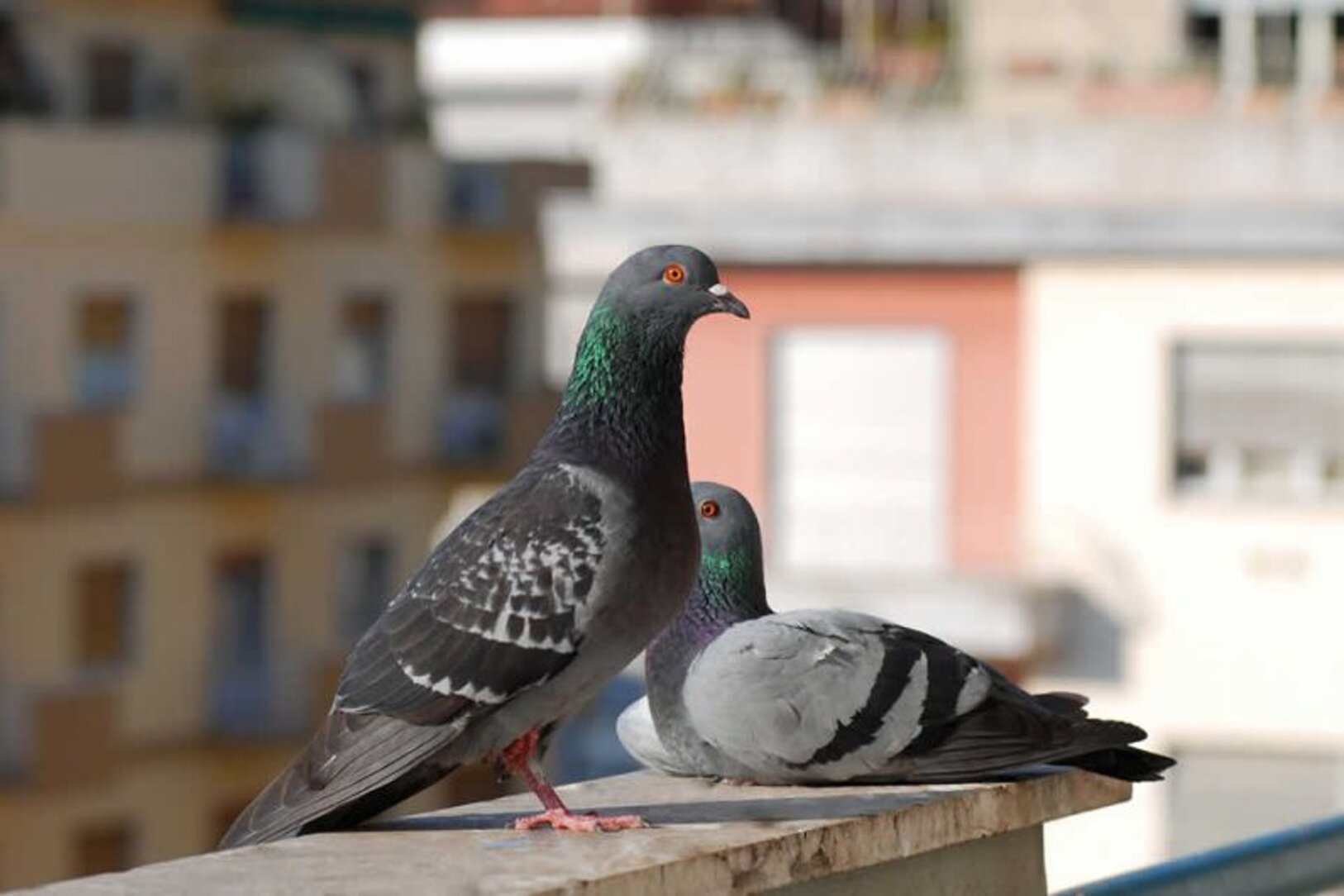
COMMON BIRDS
The "bird" problem, especially the presence of pigeons and seagulls, is becoming an increasingly serious hygienic-sanitary concern and a sign of urban decay, as these are birds with a high reproductive performance; an average of 5/6 matings per year with two eggs per clutch. The places where they find shelter (attics, gutters, vaults, windowsills, cornices) and areas infiltrated by organic matter (roofs, walls) become populated with pathogens and parasites (ticks, mites, and pigeon lice) derived from organic debris (droppings and remains of dead birds). Bacteria spread freely in the air and reach public and private places, contaminating humans. Fecal contamination of the environment, the pulverization and dispersion of guano, and the presence of nests in buildings sometimes cause irreparable damage and provide opportunities for the spread and transmission to humans of infectious diseases, such as Salmonella, avian flu, and Psittacosis.
DAMAGES CAUSED
Pigeon droppings contain a large amount of acids diluted by rain or humidity, which penetrate brick or stone structures. Metal structures also suffer damage and lesions due to the corrosive capacity of guano. The presence of diluted organic substances, which seep from roofs, triggers a sometimes irreversible process of deterioration. Pigeons have learned to survive in most environments, as they feed on the food we discard and require only a minimal amount of protected space to nest. The longer the birds are left undisturbed to infest and nest in an area where they should not be, the more difficult it will be to remove them. While in the past pigeons tended to be found mostly in the historic centers of cities, nowadays many of them also reach suburban and industrial areas.
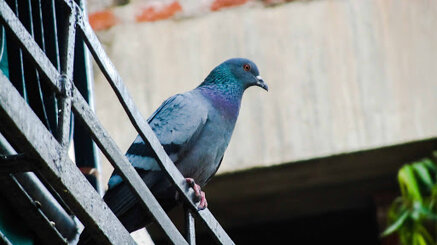
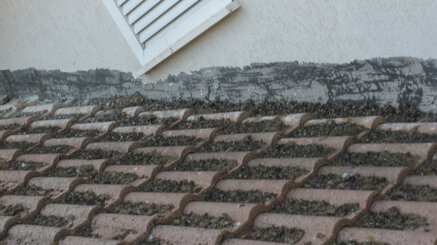
SPECIALIZED INTERVENTIONS
CLEANING AND REMOVAL OF GUANO
Pigeon guano (accumulation of droppings) represents both an environmental-decorative problem and a health issue for humans.
Pigeons, nesting on roofs, gutters, and terraces, bring with them insects, bacteria, and ticks; the latter are very harmful to humans as they cause many diseases. Pigeon ticks are a problem not to be underestimated; even after the pigeon has been removed, they remain in the area and find refuge in cracks and crevices of windows.
PHOTOVOLTAIC PANEL PROBLEM
A photovoltaic system full of dust and pigeon droppings
can lose up to 40% efficiency!
solar panels are often chosen as a place for various bird species to perch and nest. Cleaning up droppings, keeping birds away, and installing barriers ensures maximum performance of solar and photovoltaic panels. Those who choose to install solar panels must be aware that, like any other equipment, maintenance is essential. Without maintenance, in fact, the systems do not function properly and there is lower energy output. One of the major problems for panels is certainly the perching and nesting of birds such as pigeons. The presence of these animals and the substances they produce compromise the efficiency of the systems, as they reduce the cooling of the panels and therefore their operation.
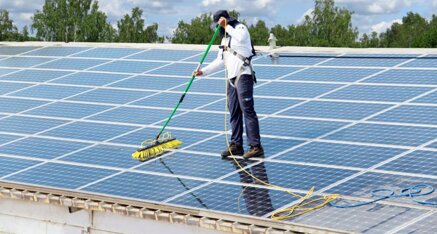
It is important to know that bird droppings exposed to the sun turn to dust and are carried by the wind, acting as a vehicle for the transmission of over 60 infectious diseases such as salmonellosis, toxoplasmosis, and so on. Moreover, each of these lovely creatures produces up to 12 kg of droppings every year. Essentially, this amounts to a real mountain of organic material that covers the solar panels on roofs, damaging them. In fact, guano is not only acidic and corrosive, but when it covers solar panels it overheats the cells, which consequently deteriorate much more quickly.
For these reasons, our company Ecopiakos first carries out a complete removal of the guano (disposing of it as special waste) followed by an intensive sanitization using a synergistic combination of ecological methods and cutting-edge technologies, such as the use of non-toxic antiseptics and ozonation.
All in compliance with current USL Health Regulations.
OUR INTERVENTION
Pigeons use spaces in the upper parts of buildings, such as cornices and roofs, to nest. Balconies, cornices, chimneys, gutters, air conditioners, and pipes are the preferred areas for nesting. With expertise and professionalism, we strive to solve the problem.
There is no magic wand... Sometimes people believe that to solve the problem of birds it is enough to install any accessory considered effective. Unfortunately, this is not the case! A good anti-bird product may be effective in one situation and ineffective or even counterproductive in another. What is important, instead, is to always contact specialized installers.
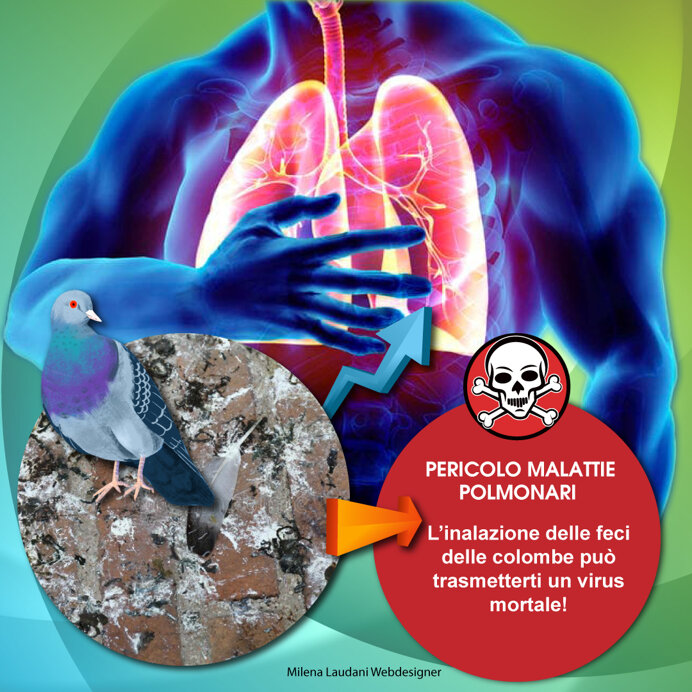
guano removal
guano removal
Click on the photo to see our PHOTO GALLERY
REMOVAL METHODS
There are many bird deterrent methods. Remembering that in no way can they be harmed, cutting-edge techniques have been developed to keep them away.
From anti-intrusion nets to acoustic waves, from PVC balloons to new falconry methods with trained birds of prey. Request an inspection from one of our technicians in your city. Together we will develop the best strategy and provide you with a detailed free quote.
Remember that our bird deterrent services are available in all cities of Sicily.
Our company offers specific bird deterrent methods, including ecological options. There are various deterrent methods that our company can implement in Enna, Catania, Palermo, Messina, Agrigento, Caltanissetta, Ragusa, Trapani, Siracusa:
Visual deterrents mainly used in large parking lots or spaces that need to remain clean. These are helium balloons that create a visual barrier for birds, which will encounter these "intruders" while flying. However, this method should obviously be integrated with other systems.
Electric deterrents are a method to solve the problem of birds on roofs, works of art, bell towers, and churches. This system is as efficient as it is demanding to implement: a low-voltage electrical conductor circuit is installed on the edges of roofs, balconies, or cornices. The electricity transmitted does not kill the bird, and this type of system has a very low visual impact.
Chemical deterrents are chemical sprays or gels used for small bird deterrent interventions on balconies or windowsills in Rome.
Mechanical deterrents obviously there are mechanical means of various kinds. Our technicians are able to install special nets to block birds from flying onto balconies, terraces, or cornices. Another special type of mechanical deterrent is spikes. This system is quite effective but has a high visual impact.
Falconry is a little-used system, a real falcon directed by a falconer will create territoriality in the area infested by birds, thus preventing their presence for a period of time.
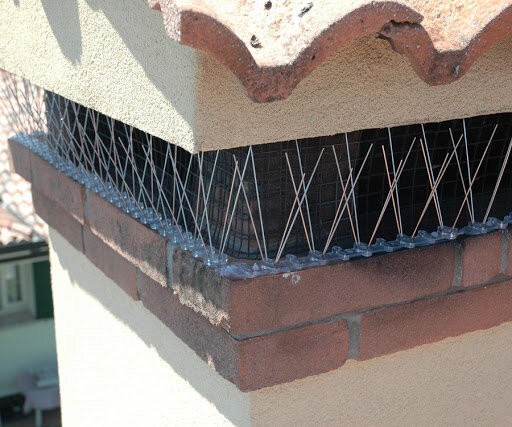
Ecopiakos Ecological Solutions - VAT 05534520878
